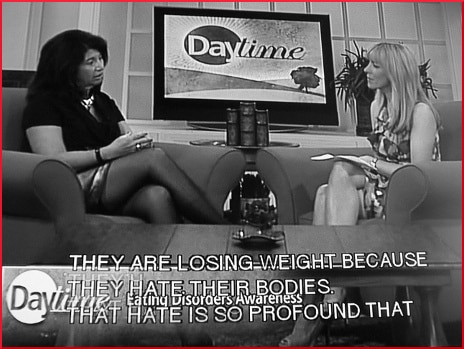
A lot of people certainly want fat-shaming to be effective, and, sadly, many of them are parents. There are too many instances where parents damage a child because their own self-esteem and reputation are at stake. They don’t want the world to look down on them, blaming and shaming them for having an overweight child. So they pass it along, which is a failing strategy and a great unkindness.
Other fat-shamers, like siblings, age peers and strangers, don’t really have any skin in the game, so to speak. If the obese child should happen to lose weight, they just move on and find another target for their bullying. When attacking adults who are too big, other grownups have an arsenal of weapons, from guilting them because they won’t live to see their kids grow up, to suggesting that fat people should pay more taxes to compensate for the general aggravation they cause society. (Just kidding. The reason given is they they show “poor personal responsibility.”)
In the case of New Jersey governor Chris Christie, some constituents began to mutter that a guy who couldn’t control his own appetite should probably not be running a state. It may have been fat-shaming that motivated him to have bariatric surgery, but as for whether it helped him become a better politician, the jury is still out.
The career
Then, there are professional fat-shamers whose only interest is in building their YouTube or Twitter following. Of course, this ambition is disguised in a cloak of concern, and they may even regard themselves as brave prophets who just want to help.
Video personality Nicole Arbour, for instance, achieved brief notoriety by making it her mission to offend people into losing weight. Someone floated the idea of popularizing “Tell a Friend They’re Chubby Day.” Emily Shire of The Daily Beast defined this urge as stemming from an erroneous belief that “you can tease and torture people into weight loss.”
Other professionals, with earnest good intentions, are sometimes accused of fat-shaming. Who can forget the turmoil in the state of Georgia when a certain collection of billboards appeared along the roadsides? Ron Frieson of the Georgia Children’s Health Alliance created the ad campaign based on the premise that kids want straight talk. Of course, controversy ensued, and there were some bitter complaints. But in response to a news organization’s inquiry, more than half the people polled said that the billboards were just the wake-up call that parents seemed to need.
Plenty of shame to go around
Meanwhile, across the nation, hardcore resisters of the “nanny state” groused about Michelle Obama’s Let’s Move! program. Some paranoid types insinuated that by trying to transform America into a no-fat-kids zone, the former First Lady meant to commit a kind of genocide. Even the gentler critics were convinced that trying to make school lunches more nutritious was a sneaky form of bullying.
Plus-size models feel fat-shamed, because they would prefer to be known simply as models. On a bad day, an overweight person might feel that entire industries exist just for the joy of fat-shaming. Otherwise, why are there no clothes that fit, or movie theater, airplane, or amusement-park ride seats that are capable of being sat in?
Last year, Glamour magazine included comedian Amy Schumer in its issue praising women who are “Chic at Any Size.” Schumer, who did not appreciate being classified along with Melissa McCarthy, Ashley Graham, and vocalist Adele, identified the Glamour editors as “not cool.”
Your responses and feedback are welcome!
Source: “Amy Schumer Slams Glamour,” Greatist.com, 04/05/16
Photo credit: Daniel Oines (dno1967b) via Visualhunt/CC BY

 FAQs and Media Requests:
FAQs and Media Requests: 











